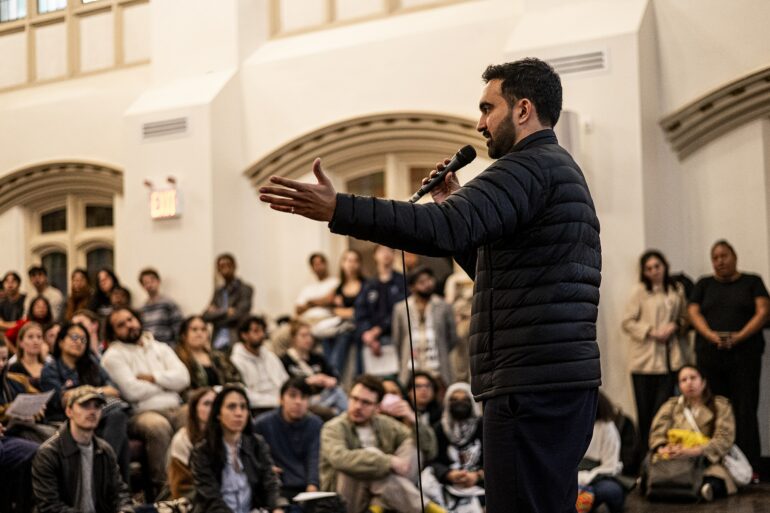Zohran Mamdani, the democratic nominee in the New York City mayoral race, has now reportedly stirred controversy with his extreme new proposal to impose higher taxes on predominantly white neighborhoods.
The plan, outlined on his campaign website in a policy memo titled “Stop the Squeeze on NYC Homeowners,” aims to address what Mamdani describes as a deeply inequitable property tax system.
Mamdani asserts that the current tax framework favors wealthier areas, where property assessments are artificially capped, resulting in homeowners in affluent neighborhoods paying less than their fair share.
He argues that this system disproportionately burdens homeowners in the outer boroughs, particularly in neighborhoods like Jamaica and Brownsville, where residents face higher tax rates.
His solution involves shifting the tax burden from these overtaxed homeowners to those living in more expensive, predominantly white areas.
“By adjusting assessment rates, we can lower tax payments for homeowners in struggling neighborhoods while increasing contributions from wealthier areas,” Mamdani stated. This shift, he argues, would promote greater equity within the city’s tax structure.
The proposal has garnered significant attention, particularly following Mamdani’s recent victory over former Governor Andrew Cuomo in the Democratic primary.
His remarks have drawn sharp reactions from critics. The Republican National Committee labeled him a “socialist candidate,” while Fox News commentator Joe Concha referred to Mamdani’s plan as both racist and detrimental to the Democratic Party’s image.
Critics argue that targeting taxes based on neighborhood demographics raises serious ethical concerns about equity and fairness. Democratic commentator Brianna Wu remarked, “Proposing to tax people more based on race is a dangerous precedent.”
Mamdani’s campaign has positioned him as a voice for far-left change in a city facing significant economic disparities.
As he prepares for the general election against incumbent Mayor Eric Adams, who is running as an independent, and Republican Curtis Sliwa, Mamdani’s proposals will likely be central to the political discourse.
As the election approaches, the implications of Mamdani’s tax strategy could reverberate beyond New York City, influencing broader discussions about taxation and social equity in urban America.
His plan challenges traditional notions of fiscal responsibility while advocating for a reformed tax system that seeks to balance the scales in one of the nation’s most liberal cities. Whether this strategy resonates with voters remains to be seen however.
[READ MORE: Hegseth Insults Fox News Reporter]



